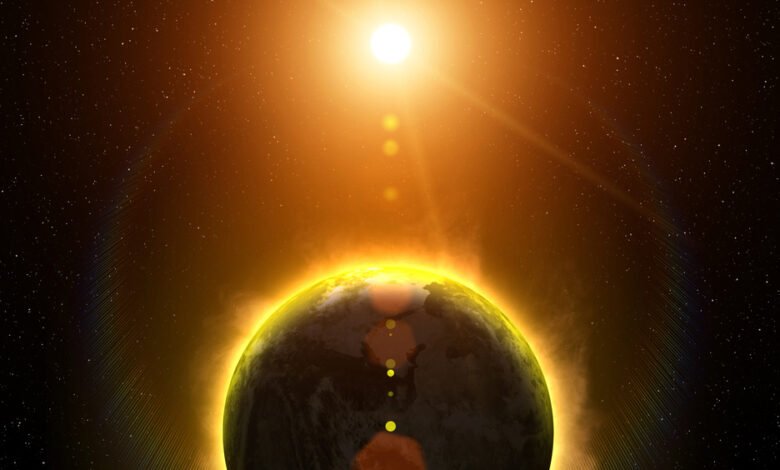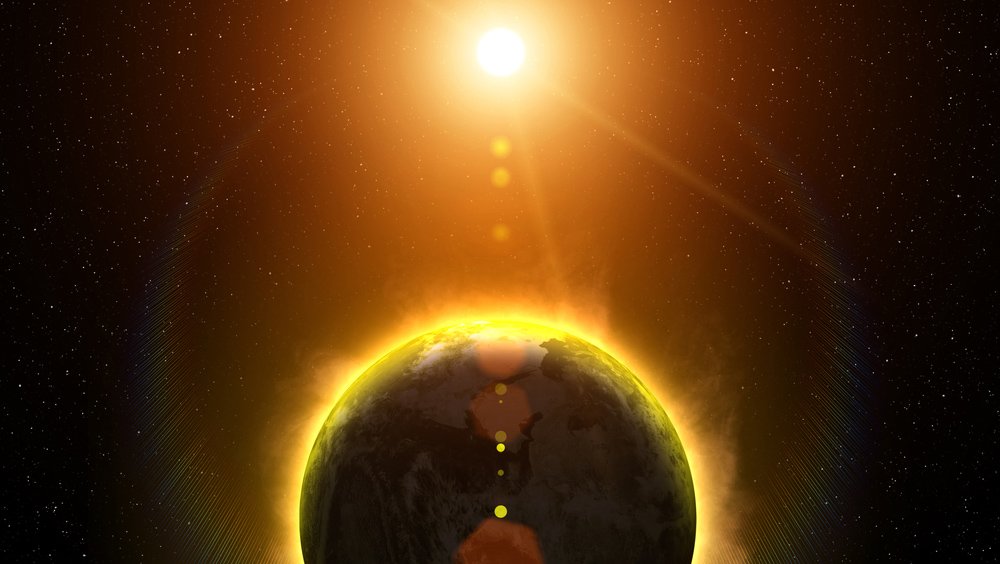Global warming can lead to a new ice age, scientists warned

Global warming can lead to a new ice age, scientists warned
Researchers from the University of California in Riverside (UCR) found the missing element in previous descriptions of the carbon cycle – and came to the conclusion that global warming can provoke the ice age.
The traditional point of view lies in the fact that the climate of the Earth is supported in equilibrium by a slow, but reliable natural system for thewashing of rocks.
Planetary climate control
In this system, rain captures carbon dioxide from the air, enters naked rocks on land – especially silicate, such as granite – and slowly dissolves them. The captured Co₂, along with dissolved calcium of breeds, enters the ocean, where they connect, forming shells and limestone reefs, and carbon is connected on the seabed for many million years.
“When the planet heats up, the breeds disappear faster and absorb more Co₂, cooling the planet back,” explains geologist Andy Ridgevel from UCR.
However, geological data indicate that the glacial periods in the early history of the Earth were So extremethat the entire surface of the planet was covered with snow and ice – which cannot be explained with soft temperature control.
Vicious circle
Photo: Science 2025
The missing element of the carbon cycle is phosphorus. As Co₂ content increases in the atmosphere and warming, this element is all the more intensively washing into the sea, stimulating the growth of plankton, which, in turn, actively absorbs carbon.
Decaying algae on the seabed consumes oxygen. And the stronger, the more phosphorus recirculates into the water. A feedback loop arises: more nutrients in water leads to an increase in plankton, the decomposition of which removes even more oxygen, and recirculates even more phosphorus. The ocean is more actively binding the carbon, cooling the planet.
At some point, the planetary “climate-control” goes into the breaking, cooling the earth more than the former. Computer modeling, the results of which have reached Scienceshows that this process may well lead to a new ice age.
Ridgewell compares all this with the air conditioning: “In the summer you install a thermostat at 25.5 ° C. When the air temperature on the street rises during the day, the air conditioner removes excess heat inside until the temperature in the room drops to 25 °, and turns off. ”
The thermostat of the Earth is not broken, but perhaps it is not in the same room as the air conditioner block, which leads to improper work, the professor continues the analogy.
Less than now, the oxygen content in the atmosphere in the geological past made this “thermostat” much more unstable, which led to extreme ice age.
When the ice age comes
In the short term, the planet will continue to heat up. Then the thermostat will get out of the soft adjustment mode, and cooling will begin. But it will not become extreme – because there is more oxygen in the air.
“As if they had moved the thermostat closer to the air conditioner block,” says Ridgewell. However, this may be enough to bring the beginning of the next ice age closer.
“Ultimately, what’s the difference, the next ice age will begin in 50, 100 or 200 thousand years? Now you need to focus on limiting current warming. The fact that the earth will ultimately cool down, no matter how unstable this path will not happen so quickly to help us in this life, ”the geologist concluded.
Subscribe and read “Science” in
Telegram
Source Notice:
This article is republished from
naukatv.ru
on 2025-09-26 13:38:00.
Content and views belong to the original publisher, not UAE Today News.




